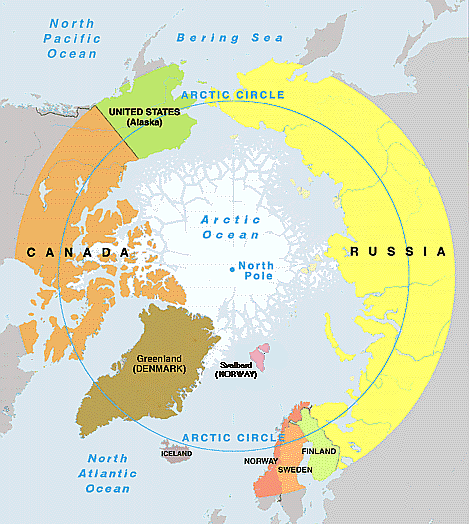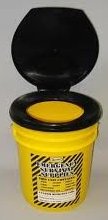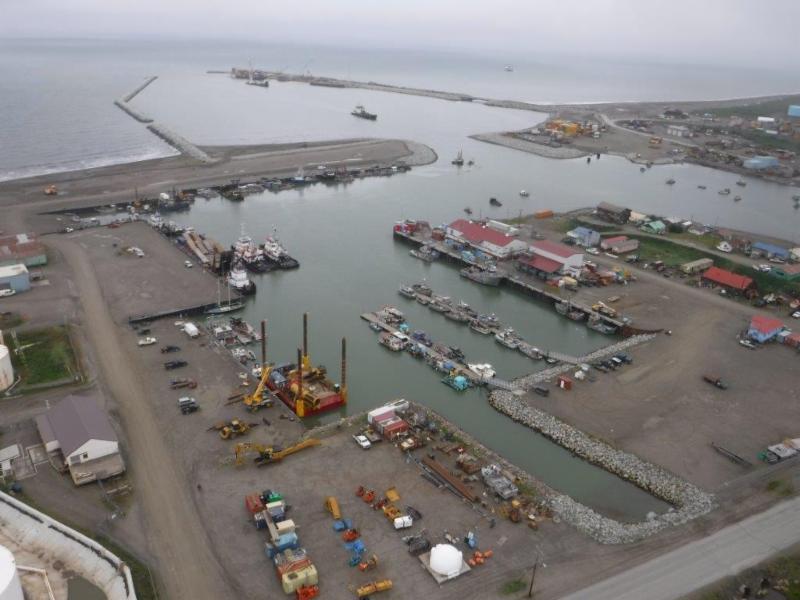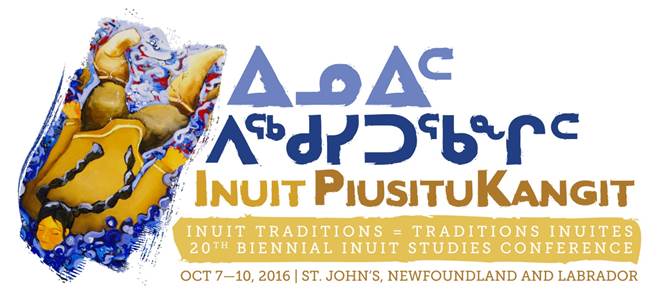|
|
|
|
|
|
|
|
The event will be a dialogue on one of the four themes of the ministerial: "Arctic Science as a Vehicle for STEM Education and Citizen Empowerment." The event also provides an opportunity to hear from ministerial participants before the closed meetings of the ministerial begin the next day.
Second International Conference on Natural Resources and Integrated Development of Coastal Areas in the Arctic Zone, September 27-29, 2016 (Arkhangelsk, Russia). The Conference is organized by FASO of Russia, Russian Academy of Sciences, Government of Arkhangelsk region, Arkhangelsk Scientific Center and International Arctic Science Committee (IASC). Conference is aimed at elaboration of research-based practical measures and instruments for realization of human, natural and transport-logistical potential of the Arctic zone, including development of the Northern Sea Route and implementation of models of integrated coastal areas management. For additional information, please email.
Today's Congressional Action:
The Senate is expected to consider short-term legislation to fund government operations after September 30th. The House is expected to consider the Water Resources Development Act.
|
Media
 [Blog] The Science of our Shared Arctic. [Blog] The Science of our Shared Arctic. The Arctic region is warming faster than anywhere else on earth. The resulting changes are having profound consequences for the communities, economies, and ecosystems of the region. Because of feedback loops and propagating effects, moreover, those changes are accelerating the rate of climate change worldwide, ultimately impacting societies everywhere, not just those in or immediately adjacent to the Arctic region. A year ago this month, President Obama became the first sitting U.S. President to set foot in the Arctic-the first President to walk on its thawing permafrost and visit its isolated communities. He bore witness to the unfolding challenges of shrinking glaciers, receding sea ice, coastal erosion, and wildfires that burn even tundra-all with impacts on humans and wildlife alike. And he recognized that the pace and import of these changes call for intensified international scientific collaboration to understand all that is happening and what more is likely to happen, as well as for concerted efforts to make that understanding available to inform the responses of the people in the region and nations around the world. The Huffington Post
Researchers Refining Arctic Climate History Through Diatoms. Just above the Arctic Circle, in remote southwestern Greenland, UMaine researchers are seeking to better understand the effects of a changing climate on arctic lakes by looking at one of their smallest inhabitants-Discostella stelligera. The research team conducted a large-scale experiment to test the role of a lake's thermal structure on populations of D. stelligera, a species of diatom whose abundance is often used as an indicator of warming induced changes in lakes throughout the Northern Hemisphere. Phys.Org
Alaskan Village Fights for Clean Water Before it Disappears. Modern sewer and water facilities have long been the dream of the residents of the tiny barrier island community of Kivalina, which is fighting a battle between the warming ocean that's eroding its shoreline and a lack of money needed to move the community to higher ground. The Native village's 400 residents have no centralized sanitary service, other than a single line that serves the school, the health clinic, and a community facility with clothes washers and showers. Each homeowner must haul drinking and washing water from a large tank in the center of town or from the local river. E&E News
Tradition Versus Progress. In "Village at the End of the World" the stark and dramatic scenery of Niaqornat, a remote community in north-west Greenland, is so mesmerising it is easy to forget that the Inuit village may be doomed. Among the village's foes are climate change, a dwindling local economy and the allure of the digital world. When Sarah Gavron and David Katznelson arrived in 2009 to make a documentary, Niaqornat had 59 inhabitants. By the end of filming 18 months later it had 53. "There is this sort of magic number of 50 that is talked about," explains Ms Gavron, "under which [Danish] subsidies will be stopped and the supply ship won't come anymore." The village appears to be persisting on borrowed time and money. The film concentrates on four characters: Karl, the mayor and chief hunter who is fighting to re-open the fish-processing factory (closed in 2008 due to falling profits); Ilannguaq, a chatty sewage and refuse collector who moved to Niaqornat from the south after meeting a local girl online; Ane, the oldest woman in the village and a charismatic storyteller; and Lars, a sweet but desperately bored teenager who is toying with the idea of leaving. The film's leitmotif is the tension between old and new, between respecting tradition and embracing modernity. The Economist
 Alaska Holds Global Gathering on Sewer and Water Issues. Alaska Holds Global Gathering on Sewer and Water Issues. Experts from around the world are gathering in Anchorage this week to talk about providing healthy water and sewer services in remote Arctic communities. The three-day conference started Monday. It is hosted by the Arctic Council and looks at innovative approaches to solving a problem which plagues the entire Arctic region. In the far north, conventional approaches to water and sewer supply and management either don't work, are unsustainable, or are too expensive. KNBA
"Tangible" Results From Water Innovations for Healthy Arctic Homes Conference. On Wednesday, the conference on Water Innovations for Healthy Arctic Homes, or WIHAH, wrapped up in Anchorage. The goal of the conference was to address the challenges of providing safe and affordable access to running water and sanitation. Panelists with different technical backgrounds presented earlier this week. One of the presenters, local Nome resident Megan Alvanna-Stimpfle, says this conference is the first of its kind, hosted by the State and federal agencies who deal with sewer and water within Alaska. KNOM
Arctic Shipwreck Confirmed as Franklin Expedition's Missing HMS Terror. Canadian officials have confirmed that a shipwreck found in uncharted waters of a remote Arctic bay earlier this month is in fact HMS Terror, the second of two British ships lost in the ill-fated 19th century attempt to sail through the Northwest Passage. The wreck of the British Royal Navy ship, which was abandoned in sea ice in 1848 during Sir John Franklin's disastrous Arctic expedition, was found on September 3 by the Arctic Research Foundation's Martin Bergmann research vessel thanks to a crucial tip by an Inuk crew member. RCI Net
 With WRDA Bill Passed, Nome Arctic Deep Draft Port Back in Conversation. With WRDA Bill Passed, Nome Arctic Deep Draft Port Back in Conversation. With U.S. Sen. Dan Dullivan's help, the Water Resources Development Act (WRDA) has passed the U.S. Senate, inching Nome closer to the possibility of an Arctic deep draft port. The act will bring $1.4 billion dollars to new water infrastructure over the next five years. The funding is focused in three areas: infrastructure, subsistence harbors, and an Arctic deep draft port. Working with the Tribal Health Consortium, the act's focus on infrastructure places grant money in villages that do not have basic drinking water or wastewater services. The money will also help communities whose water systems are below health standards. The Army Corps of Engineers will conduct a feasibility study for an Arctic port. That study was put on hold after a period of instability, including an economic loss after Shell's withdrawal from the Chukchi Sea. But Sen. Sullivan says this study will be look past economics. "National security, search and rescue, oil contamination clean-up: all of these things need to be factored in when the Corps is looking at the importance of these issues." KTVA
Arctic Spending. The Defense Department has allocated about $6 billion toward its activities in the Arctic in fiscal year 2017, according to a new report to Congress. The June report, released Sept. 23 by the Defense Department, "provides costs for research, military infrastructure, and capabilities assessed by Geographic Combatant Commands and the Military Departments to be located in the Arctic, dedicated to Arctic missions, or likely to be employed in the Arctic in defense of North America or North Atlantic Treaty Organization (NATO) Allies." Inside Defense
|
Legislative Action.gif)
No Arctic legislation was formally considered yesterday.
|
|
Future Events
National Academies of Sciences..."Scientific Priorities for a Changing Arctic(panel discussion)," September 29, 4:00 to 6:30pm (Washington, DC. The public is invited to a recap and discussion of the first-ever White House Arctic Science Ministerial taking place, in Washington, DC, on September 28. At that event, ministers of science, chief science advisors, and other senior officials from countries around the world, as well as representatives from indigenous groups, will address the collective actions and innovative collaborations
 needed to enhance scientific understanding of the rapidly changing Arctic. This Academies' event and reception provides an opportunity to broaden the conversation to all those interested in the Arctic science and policy. Panelists will include officials from the White House, from the USARC, and others involved in the ministerial discussions. needed to enhance scientific understanding of the rapidly changing Arctic. This Academies' event and reception provides an opportunity to broaden the conversation to all those interested in the Arctic science and policy. Panelists will include officials from the White House, from the USARC, and others involved in the ministerial discussions.
As an exciting cultural addition to the program, producers of a new large format 3D film about Greenland will share their storytelling strategies and the process of using immersive cinema, virtual reality and the perspectives of climate scientists and  extreme athletes to expand public understanding of the Arctic environment. Presenters will represent producing partners Giant Screen Films, Teton Gravity Research, and Golden Gate 3D. Support for this event is provided by USARC and the National Academies of Sciences, Engineering, and Medicine. Please register
Arctic Economic Council: Building the Bridge Between Arctic Research/ Academia and Business Through Technology, September 29, 2016 (Washington, DC USA). This Arctic Science Ministerial side event, sponsored by the Arctic Economic Council, will explore value propositions for public-private partnerships for effective pan-Arctic knowledge and data exchange. Industry, research and technology experts will convene at the Embassy of Finland to address challenges and innovative tools for building the knowledge bridge between research and business communities. 9:30 am to 11:15 am at 3301 Mass. Ave., NW. Doors open at 9:00 am. Space is limited and RSVP is required for security purposes. Please RSVP by September 26 to anu@arcticeconomiccouncil.com
Media Coverage in the Arctic: News from the North: What's Happening in the Arctic is no Longer Staying in the Arctic, September 29, 2016 (Washington, DC USA). High North News will host on Capitol Hill, a lunchtime discussion on media coverage of the Arctic. The luncheon begins at 12:30 pm, at the Oracle Townhouse, 27 D Street, SE, Washington, DC. RSVP is required, contact Berit Enge (berit.enge@highnorthnews.com)
106th Commission Meeting of the US Arctic Research Commission. September 29-30, 2016 (Washington, DC USA). The U.S. Arctic Research Commission will hold its 106th meeting in Washington, DC, on September 29-30, 2016. The business sessions, open to the public, will convene at 8:30 a.m. at the U.S. Global Change Research Program, 1800 G St. NW., #9100, Conf. Rm. A, Washington, DC 20006. The focus of this meeting will include reports and updates on programs and research projects affecting Alaska and the greater Arctic.
 The daylong conference at the University of Southern Maine will address challenges and opportunities for Arctic science, business, shipping, security and governance. Speakers will include Sen. Angus S. King (I-Maine) and co-chair of U.S. Senate Arctic Caucus (Invited); Craig Fleener, Special Asst. on Arctic Policy, State of Alaska, Prof. Charles Norchi, Dir. Center for Oceans and Coastal Law, Univ. of Maine School of Law, Ambassador David Balton, Chair of the Senior Arctic Officials and Tara Sweeney, Arctic Economic Council Chair and Executive Vice President, External Affairs, Arctic Slope Regional Corporation. Event sponsored by Pierce Atwood LLP and Univ. of Southern Maine on behalf of the Maine and Alaska Arctic Council Host Committees. The daylong conference at the University of Southern Maine will address challenges and opportunities for Arctic science, business, shipping, security and governance. Speakers will include Sen. Angus S. King (I-Maine) and co-chair of U.S. Senate Arctic Caucus (Invited); Craig Fleener, Special Asst. on Arctic Policy, State of Alaska, Prof. Charles Norchi, Dir. Center for Oceans and Coastal Law, Univ. of Maine School of Law, Ambassador David Balton, Chair of the Senior Arctic Officials and Tara Sweeney, Arctic Economic Council Chair and Executive Vice President, External Affairs, Arctic Slope Regional Corporation. Event sponsored by Pierce Atwood LLP and Univ. of Southern Maine on behalf of the Maine and Alaska Arctic Council Host Committees.
Arctic Ambitions V: International Business Conference & Trade Show, October 4-5, 2016 (Anchorage, Alaska, USA). This once-a-year event uniquely focuses on business and investment opportunities flowing from developments in the Arctic. With interest in commercial development in the Arctic growing rapidly, WTC Anchorage initiated the Arctic Ambitions conference five years ago to address issues such as innovation, investment, infrastructure development, transportation, natural resources, and trade. At the event, corporate executives and senior government officials from across the Arctic, and around the world, make presentations and participate in panel discussions. This year's conference also includes a Trade Show and B2B Matchmaking Session. For more information, please contact Greg Wolf ( greg@wtcak.org) or call 907-278-7233.
56th Annual Air & Waste Management Association Conference October 5-7, 2016 (Juneau, AK USA). Come join us at the Pacific Northwest International Section's (PNWIS) annual conference in Juneau and connect with many of the region's top environmental professionals. Catch up on the latest developments in arctic related regulatory policy and law, environmental science and technology, environmental modeling, and other topics over three days of parallel technical sessions. PNWIS is a catalyst for environmental leadership by providing a neutral forum for discussion, education, and networking on technical issues relating to environmental management in the U.S., Alaska, the Pacific Northwest and Western Canada. Exhibitor booths will be on display and you can attend a keynote speech by the Deputy Commissioner of the AK Department of Environmental Conservation, Alice Edwards.
 20th Biennial Inuit Studies Conference: Inuit Traditions. October 7-10, 2016 (St. Johns, Newfoundland and Labrador). Inuit traditions are a repository of Inuit culture and a primary expression of Inuit identity. The theme for the 2016 Inuit Studies Conference invites Elders, knowledge-bearers, researchers, artists, policy-makers, students and others to engage in conversations about the many ways in which traditions shape understanding, while registering social and cultural change. The institutional hosts of "Inuit Traditions," Memorial University of Newfoundland and the Nunatsiavut Government, invite you to contribute to an exchange of knowledge to be held in St. John's, Newfoundland and Labrador, October 7-10, 2016. Presentations on all aspects of Inuit studies will be welcome.
Arctic Circle Assembly. October 7-9, 2016 (Reykjavik, Iceland). The Arctic Circle is the largest network of international dialogue and cooperation on the future of the Arctic. It is an open democratic platform with participation from governments, organizations, corporations, universities, think tanks, environmental associations, indigenous communities, concerned citizens, and others interested in the development of the Arctic and its consequences for the future of the globe. It is a nonprofit and nonpartisan organization.In addition to the annual Assemblies, the Arctic Circle organizes Forums on specific areas of Arctic cooperation.
Arctic Technology Conference, October 24-26, 2016 (St. John's, Canada). Founded in 1969, the Offshore Technology Conference (OTC) is the world's foremost event for the development of offshore resources in the fields of drilling, exploration, production and environmental protection. The Arctic Technology Conference (ATC) is built upon OTC's successful multidisciplinary approach, with 14 technical societies and organizations working together to deliver the world's most comprehensive Arctic event.
Fulbright Arctic Week. October 25-27 (Washington, DC) The 18-month Fulbright Arctic Initiative supports U.S. priorities on Arctic issues and increasing mutual understanding between Americans and those in other countries. As a culmination of the program, 17 scholars will be presenting their work at public events. Other invited speakers will include officials from the Inuit Circumpolar Council, Arctic Executive Steering Committee, and U.S. Arctic Youth Ambassadors, among other. For more information, please visit the Fulbright Arctic Week website and/or register your interest for updates.
October 25, 2-5:30pm - Smithsonian Natural History Museum
October 26, 2-5pm - Arctic Policy Dialogue at the Carnegie Endowment for International Peace
October 27, 9am-4:30pm - Fulbright Arctic Symposium at the National Academy of Sciences (Constitution Ave. location)
Towing Safety Advisory Committee, October 2016 Meeting, October 26-27, 2016 (Washington, DC USA). The Towing Safety Advisory Committee will meet in Washington, DC, to review and discuss recommendations from its Subcommittees and to receive briefs. This committee is established in accordance with, and operates under the provisions of, the Federal Advisory Committee Act. As stated in 33 U.S.C. 1231a, the Towing Safety Advisory Committee provides advice and recommendations to the Department of Homeland Security on matters relating to shallow-draft inland and coastal waterway navigation and towing safety.
Annual Scientific Meeting 2016, December 5-9, 2016 (Winnipeg, MP Canada). ArcticNet will host its 12th Annual Scientific Meeting. The ASM2016 will welcome researchers, students, Inuit, Northerners, policy makers and stakeholders to address the numerous environmental, social, economical and political challenges and opportunities that are emerging from climate change and modernization in the Arctic. As the largest annual Arctic research gathering held in Canada, ArcticNet's ASM is the ideal venue to showcase results from all fields of Arctic research, stimulate discussion and foster collaborations among those with a vested interest in the Arctic and its peoples.
POLAR 2018, June 15-27, 2018 (Davos, Switzerland). POLAR2018 is a joint event from the Scientific Committee on Antarctic Research (SCAR) and the International Arctic Science Committee (IASC). The SCAR meetings, the ASSW and the Open Science Conference will be hosted by the Swiss Federal Institute for Forest, Snow and Landscape Research WSL under the patronage of the Swiss Committee on Polar and High Altitude Research. The WSL Institute for Snow and Avalanche Research SLF is organizing POLAR2018.
|
|

  
4350 N. Fairfax Drive, Suite 510
Arlington, VA 22203, USA
External links in this publication, and on the USARC's World Wide Web site ( www.arctic.gov) do not constitute endorsement by the US Arctic Research Commission of external Web sites or the information, products or services contained therein. For other than authorized activities, the USARC does not exercise any editorial control over the information you may find at these locations. These links are provided consistent with the stated purpose of this newsletter and the USARC Web site.
|
|
|
|
|
|
|
|
|